Set 214
1191. This unidentified device was found in 1954, the 3-3/4" x 3" x 3-1/2" high unit is made of steel and weighs about 3 pounds. Followers on three shafts ride on a solid steel ball of about 1" diameter.
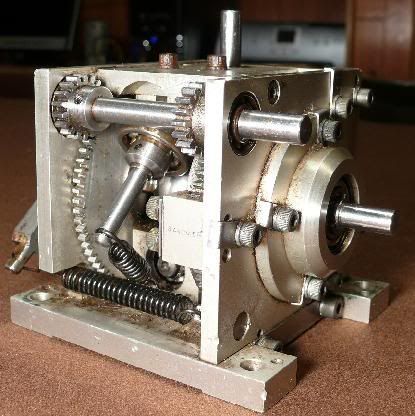
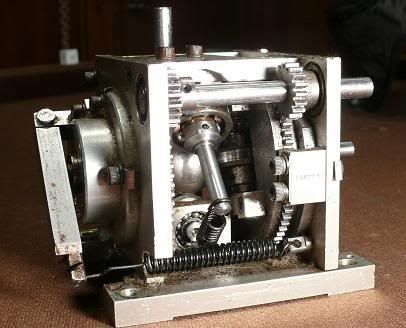
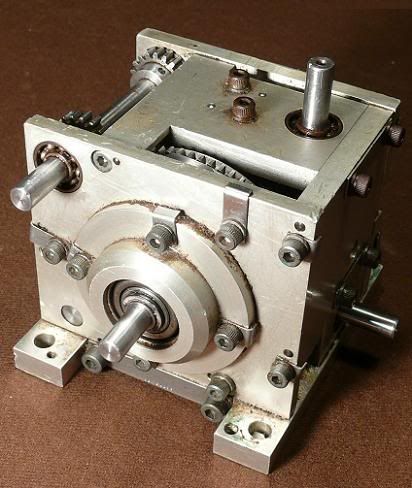
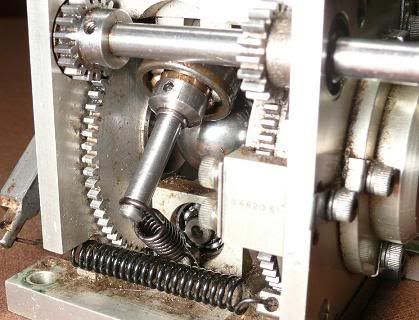
1192. 17-3/4" long, probably from the 1960's:
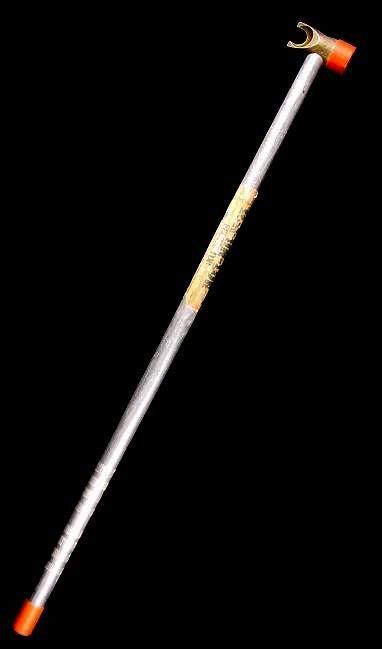
Take a look at Neatorama for more guesses on this tool, where Alex is giving away two t-shirts as prizes, one for the first correct answer and another for the most humorous guess.
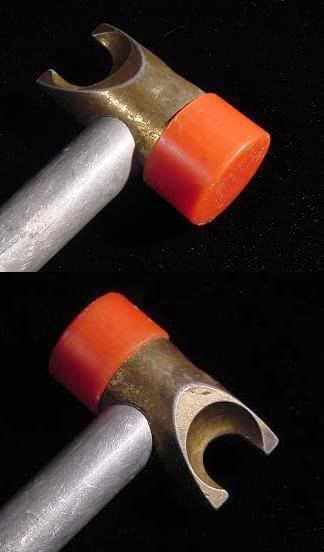
1193. 18-1/2" long, submitted by a visitor who is looking to find the purpose of this lanyard; it can be adjusted by sliding the piece around the cords:
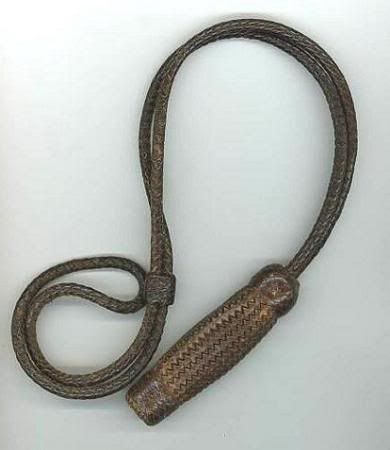
1194. This photo was taken by Simon while on his trip to Tokyo:
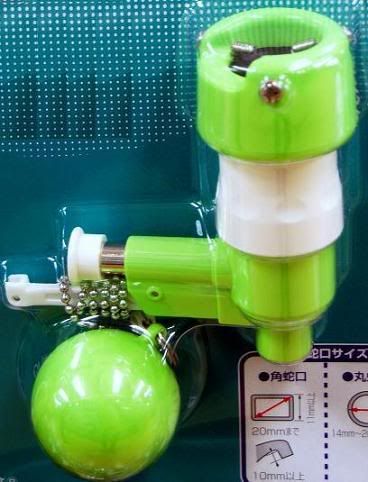
1195. 7" long:
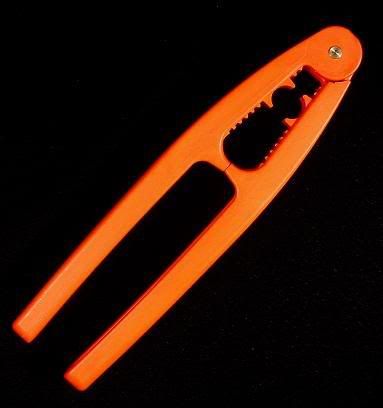
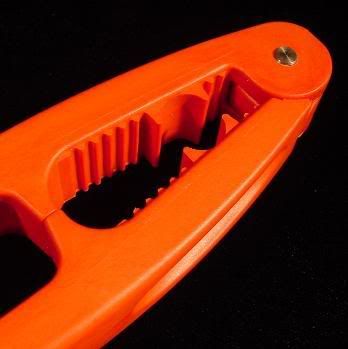
1196. 3-3/4" long, another one submitted by a visitor:
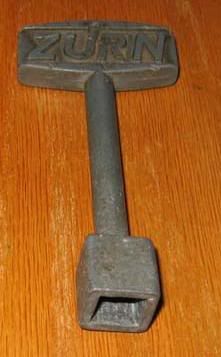
To submit photos, click on the profile link at the upper right to find my email address.
Answers
Below is last week's set, click here to view the entire post:
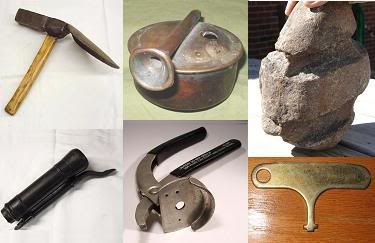
More discussion and comments on these photos can be found at the newsgroup rec.puzzles.




1192. 17-3/4" long, probably from the 1960's:

Take a look at Neatorama for more guesses on this tool, where Alex is giving away two t-shirts as prizes, one for the first correct answer and another for the most humorous guess.

1193. 18-1/2" long, submitted by a visitor who is looking to find the purpose of this lanyard; it can be adjusted by sliding the piece around the cords:

1194. This photo was taken by Simon while on his trip to Tokyo:

1195. 7" long:


1196. 3-3/4" long, another one submitted by a visitor:

To submit photos, click on the profile link at the upper right to find my email address.
Answers
Below is last week's set, click here to view the entire post:

More discussion and comments on these photos can be found at the newsgroup rec.puzzles.

12 Comments:
1191 is a co-ordinate converter. Think of it as a heavy-duty mouse or trackball. The two output shafts (right side, photo 3) are mutually orthogonal (sine & cosine). The two input shafts (also sine & cosine) are on the same face (corner and middle of right face, top photo). Photo 2 shows just a hint of how the center shaft drives the ball. [thanks Greg]
By Anonymous, at 1/10/2008 9:11 AM
Anonymous, at 1/10/2008 9:11 AM
1194. Looks like a toilet flush mechanism.
1195. Worlds most wimpy crimper.
1196. Hydrant key.
1191. I agree about the co-ordinate converter. I initially thought it was a limited slip transmission.
By Anonymous, at 1/10/2008 9:35 AM
Anonymous, at 1/10/2008 9:35 AM
1195 nut cracker
By Anonymous, at 1/10/2008 10:29 AM
Anonymous, at 1/10/2008 10:29 AM
1191 - Greg corrected his own first post...
Input is rho/theta, output is sin/cos.
By Anonymous, at 1/10/2008 10:35 AM
Anonymous, at 1/10/2008 10:35 AM
1191. How about a gradual gear shifting mechanism (you know the ones mounted on some bikes, only bigger)
1195. Nut cracker, the small grip is for pine nuts.
By Anonymous, at 1/10/2008 11:06 AM
Anonymous, at 1/10/2008 11:06 AM
Looks like 1196 is a conductor's key. Train conductors over here (Netherlands, Germany) typically carry these keys to twist controls that open doors and change switches.
By Anonymous, at 1/10/2008 11:16 AM
Anonymous, at 1/10/2008 11:16 AM
1192 is used to lock-unlock car doors on the big old sedans from the drivers seat
By Anonymous, at 1/11/2008 12:45 AM
Anonymous, at 1/11/2008 12:45 AM
1194 some sort of travel
ballcock to attach to a tap
to stop the sick overflowing.
By Anonymous, at 1/11/2008 4:39 AM
Anonymous, at 1/11/2008 4:39 AM
1995 It's very funny to find this object in "strange object", cause nut cracker are very common in France and most of people they like nuts have one at home here. Big hole for walnuts and small hole for hazelnuts.
By Anonymous, at 1/11/2008 7:23 AM
Anonymous, at 1/11/2008 7:23 AM
>1995 It's very funny to find this object in "strange object", cause nut cracker are very common...
It does look like a nutcracker but it was sold for another very specific purpose.
By Rob H., at 1/11/2008 7:58 AM
Rob H., at 1/11/2008 7:58 AM
1195 -- not a nutcracker, but used for seafood to crack open lobster/crab shells
By Unknown, at 1/11/2008 9:52 AM
Unknown, at 1/11/2008 9:52 AM
>It does look like a nutcracker but it was sold for another very specific purpose.
Sorry!!
By Anonymous, at 1/12/2008 10:00 PM
Anonymous, at 1/12/2008 10:00 PM
Post a Comment
<< Home